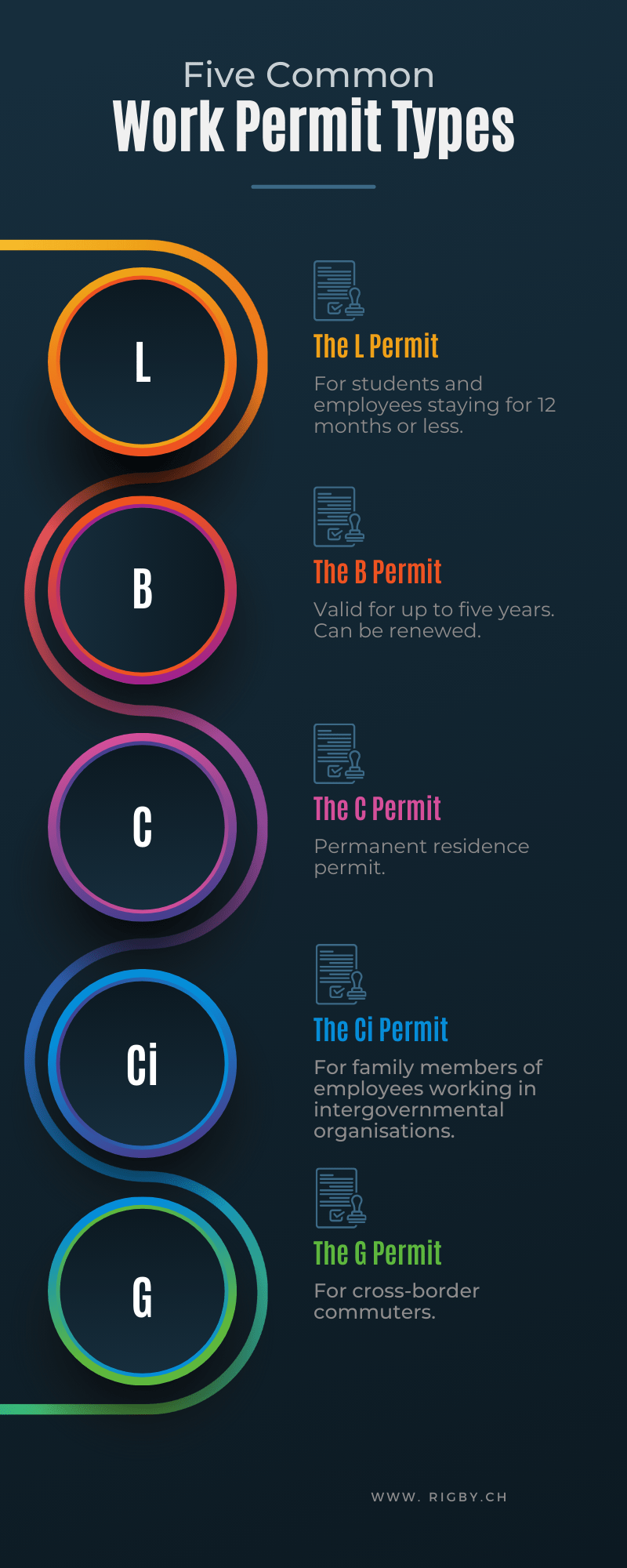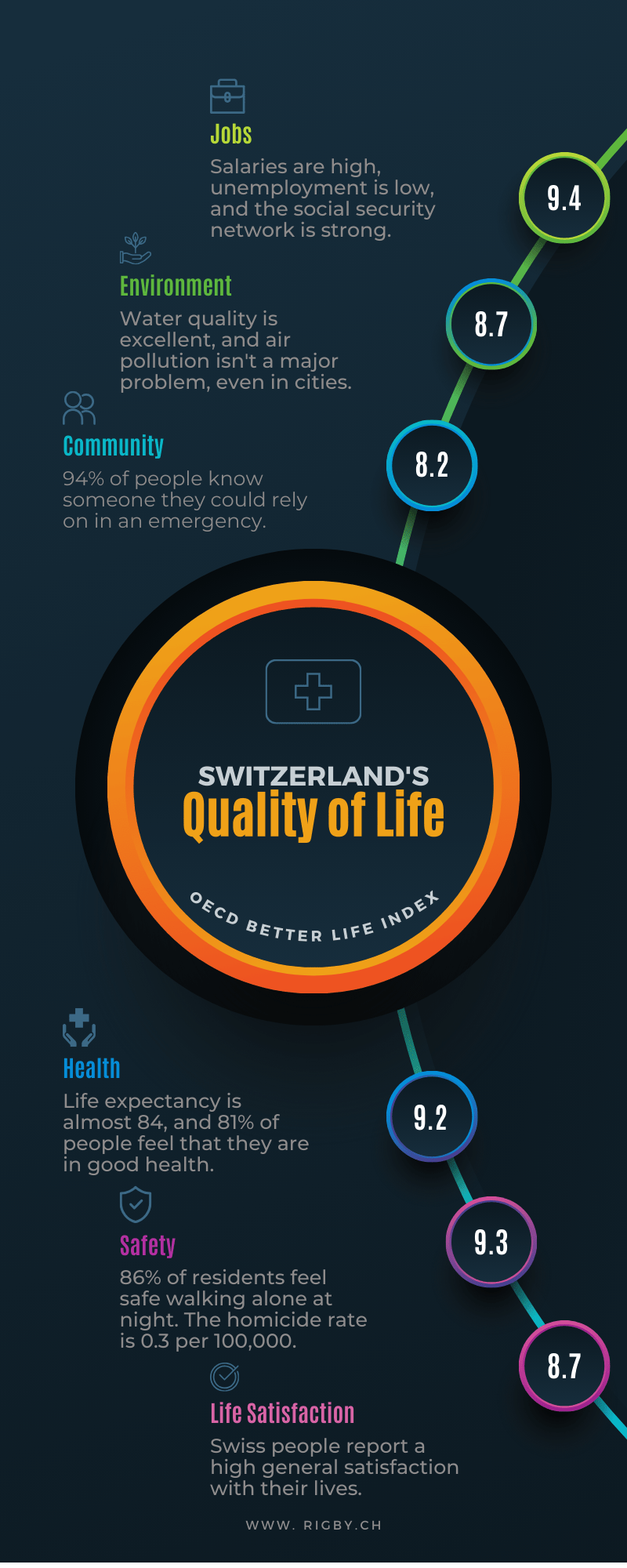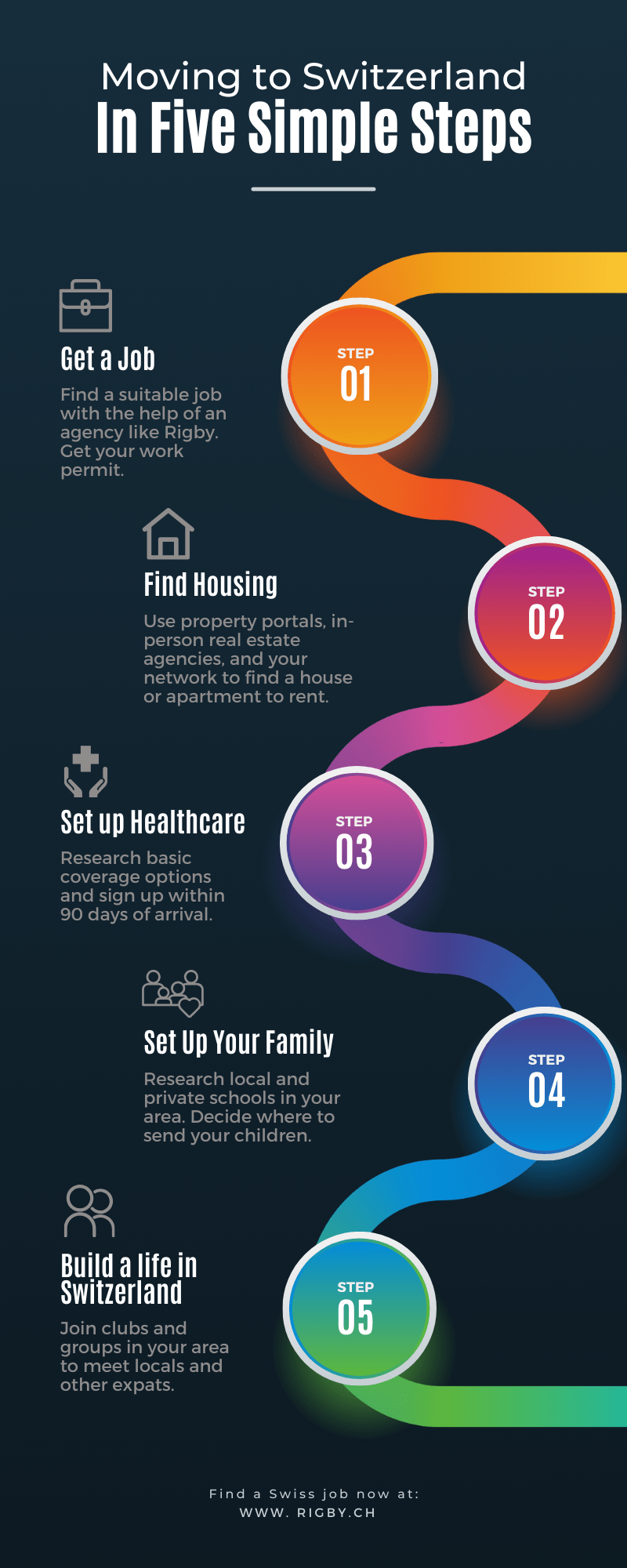Moving to Switzerland
Switzerland offers a unique blend of natural beauty, economic stability, and a high quality of life. If you’ve been thinking of relocating to this stunning Alpine nation in the heart of Europe, you’ll need to learn more about the immigration process, lifestyle, and employment opportunities. Let’s have a closer look at what moving to Switzerland is like.

What Are the Swiss Immigration Requirements?
The Swiss immigration requirements are somewhat complex, and they vary depending on your country of origin. If you’re not from an EU or EFTA country, you’ll require a visa to enter Switzerland. This can be obtained at the Swiss embassy in your country or through a third party. You can also apply for a short-term visa online. To stay long-term, you typically need a work visa tied to a particular job.
If you’re from an EU or EFTA country, you don’t require a visa to enter Switzerland and start working. However, you need to prove that you have sufficient income to sustain yourself for the duration of your stay unless you already have a job.

For EU and EFTA Nationals
Those who come from a member state of the European Union or a European Free Trade Agreement country can live and work in Switzerland more easily. Aside from Switzerland, the three EFTA countries are Liechtenstein, Norway, and Iceland.
EU and EFTA nationals don’t need a visa or work permit, but they still need to register with their local council and provide the relevant documents. They will then be issued with a residence permit. There are several options:
- The short-term permit (L permit)
- The residence permit (B permit)
- The settlement permit (C permit) - a permanent permit that can lead to citizenship
- The residence permit with gainful employment (Ci permit)
- The cross-border commuter permit (G permit)
For Non-EU and EFTA Nationals
Non-EU and EFTA nationals can only live and work in Switzerland if:
- They have a work permit
- They are seeking asylum or protection
- They have close family members with a Swiss passport.
Obtaining a work permit can be challenging because companies first have to prove that no Swiss, EU, or EFTA citizen could be found for the same job. However, it can be worth it because living in Switzerland is a fantastic experience.
Further Reading: Is It Hard to Move to Switzerland Permanently?
Is It a Good Idea to Move to Switzerland? Pros and Cons
Switzerland has a lot to offer in terms of professional opportunities, recreational activities, and overall quality of life. No matter where in Switzerland you are, you’ll get to experience a unique culture and an exceptional standard of living. Therefore, we at Rigby believe that the pros outweigh the cons of moving to Switzerland.
PROS
1. You Get to Experience a Unique Culture
Although Switzerland is a small country located in the heart of Europe and surrounded by other, larger nations, its culture is distinct. It is characterised by multilingualism, precision, and civic engagement.
Multilingualism
There are four national languages: German, French, Italian, and Romansh. Almost everyone in Switzerland speaks at least two to three languages because they are taught in schools from an early age.
Precision
Punctuality, reliability, and precision are three important values in Swiss culture. This is reflected in the Swiss infrastructure and the quality of the homes. It is also good to remember if you want to impress your new boss or friends.
Civic Engagement
Because Switzerland is a direct democracy, citizens vote on a wide range of issues three or four times a year. This makes the Swiss more politically engaged and community-oriented than citizens of many other countries.
2. You Can Live Comfortably and Safely
Switzerland is considered one of the safest countries in the world. The rate of violent crime is very low, as is the risk of natural disasters and the number of road deaths. In cities, the biggest issue is usually pickpocketing. As long as you keep your belongings in sight, you’re unlikely to run into any safety issues.
You can also expect a great healthcare system, clean and well-maintained public areas, and well-built homes. In short, the country has everything you need to be comfortable and safe.
3. Getting Set Up Isn’t So Hard
Moving to a new place is always challenging, but you can settle in quite quickly in Switzerland. In the major cities, some apartments are offered furnished, so you don’t have to take all your own things or buy everything from scratch. This is particularly practical if you’re only staying in Switzerland for a few months.
Additionally, the administrative processes are well-organized, and delays are uncommon. Government agencies are responsive, which makes it easier for you to complete your paperwork and fulfil all the requirements. There is also a strong support network of expats, both online and locally in many cities, so you can get help if you run into trouble at any stage. Many employers like Rigby also provide resources and offer support.
4. There Are Plenty of Great Cities to Settle In
Expats often settle in one of the major Swiss cities because that’s where most of the jobs are. In Switzerland, cities are smaller and more walkable than in many other countries. Residents enjoy great public transport options, many cultural events, and easy access to surrounding green areas.
Zurich
By far the biggest city in Switzerland, Zurich is a hub of culture and business. Here, you can find modern architecture as well as a picturesque old town with countless historical landmarks. The large lake provides opportunities for swimming, water sports, boat trips, and lakeside walks.
Basel
Basel, located on the River Rhone, is known for its charming old town, well-preserved historical buildings, and vibrant art scene. Every year, this city hosts Art Basel, a large contemporary art convention. There are also countless museums, galleries, and shops to explore.
Geneva
French-speaking Geneva is situated at the south-western tip of Switzerland on the shores of Lake Geneva. It is a very international city as it is home to organisations like the Red Cross and the United Nations. Geneva is known for its great diversity, international flair, and its role as a global centre for diplomacy.
Bern
Bern is the capital of Switzerland, and its medieval old town is a UNESCO World Heritage Site. It is famous for several landmarks, including the bear pit, which contains real bears, and the Zytglogge tower, an iconic clock tower.
Lausanne
If you’re looking for a French-speaking city with many cultural opportunities and a dynamic feel, Lausanne could be right for you. It features a thriving music and art scene, vibrant nightlife, and stunning views of Lake Geneva.
CONS
1. Moving Can Be Expensive
The cost of moving to Switzerland can be high. When you rent an apartment, you often have to put down a three-month deposit and take out various kinds of insurance. Additionally, you have to pay for travel, the shipping of your possessions, and your visa fees if you’re from a non-EU or ESTA country.
However, it’s important to remember that you have some control over your moving costs. Short-term rental properties may not require a large deposit. You can also ask around on expat forums and Facebook groups for low-cost movers in your area.
2. Finding a Home Can Be Challenging
One of the hardest aspects of moving to Switzerland is finding a home. Rental apartments are highly sought-after in many cities, so you might compete with ten or more other people for each flat.
Fortunately, there are several ways of increasing your chances of finding a good place. Compile a comprehensive application package and submit your application as soon as you’ve viewed a property. Additionally, ask everyone in your local network, including your employer, for their advice and guidance. To get started, sign up for our newsletter to receive our “Living in Switzerland” ebook, which includes a comprehensive guide to finding accommodation.
3. Not Everyone Can Move to Switzerland Freely
If you don’t have an EU or EFTA passport, getting a work permit can be tough. You’re more likely to be successful if you’re working in a highly specialised field or you’re in an industry that’s in high demand.
Switzerland’s Ranking Compared to Other Countries
Switzerland regularly ranks highly in lists comparing the top countries for expats. According to the OECD Better Life Index, it offers residents an excellent standard of living.
Among other aspects, locals love the great infrastructure, excellent healthcare, good safety, and high-quality environment. Switzerland also provides residents with countless cultural and recreational opportunities and a good work-life balance. Although finding local friends can be challenging at first, the expat communities in cities make life pleasant and sociable for many newcomers.

How Difficult Is It to Move to Switzerland?
Moving to Switzerland temporarily is quite easy, especially if you’ve already got a good job lined up. Your company will help you to obtain your work visa, and they might even offer support with issues like finding a rental property, signing up for the correct types of insurance, and enrolling your child in a Swiss school.
Finding Rental Properties in Switzerland
Depending on where you live, you’ll have to spend several thousands of francs a month on housing. The average three-bedroom (four-room) apartment costs CHF 2,000, and the average three-bedroom (four-room) house costs CHF 2,490 per month. However, you might have to pay significantly more if you want to live in the centre of a popular city.
You can find rental properties through various channels, including online platforms, property agents, word of mouth, and newspapers or magazines. Because the rental market can be competitive, it’s best to start looking several months before you arrive.
Healthcare
When you move to Switzerland, you have to sign up for healthcare within three months of your arrival. Otherwise, you get assigned a policy, which might be expensive and unsuitable.
There are two types of health insurance: basic and supplemental. Basic health insurance is mandatory, and you might pay between CHF 350-550 per month. Supplemental insurance is ideal for those who want extended coverage or think they might need extensive care in the future. It isn’t typically necessary for temporary residents.
Schools and Education
The Swiss education system is unique, and there is a big focus on practical training. Only around 20% of students complete upper secondary school, and everyone else participates in apprenticeships or other vocational training programmes. Despite this, 44% of Swiss working-age adults have a tertiary-level qualification because the system is very porous, and late entry into universities is encouraged.
If you’re looking to stay in Switzerland for more than a year or two, sending your child to a local school could be a good idea. They will be automatically enrolled in a language course upon arrival if the local language isn’t their mother tongue.
The Job Market
At the moment, there is a shortage of certain types of skilled workers such as corporate and IT specialists. This is partly due to the fact that Swiss companies haven’t trained enough apprentices in recent years, since this process is expensive and time-consuming. If you want to make your move, now could be a great time to reach out to a staffing agency like Rigby.

Moving with Family: Special Considerations
Moving with family is always more challenging. It’s important to consider the well-being of the accompanying spouse as well as the children when deciding whether to accept a job in Switzerland. Some key factors to keep in mind are:
- Whether your spouse has a good chance of finding a job in Switzerland
- Whether your family is excited to move with you
- How old your children are and how the move will affect their education
- What impact the move will have on your family’s standard of living
Often, moving the whole family is only worth it if you’re planning on staying in Switzerland for a longer period.
Further reading: Moving to Switzerland with Family: Practical Tips
How Expensive Is Switzerland?
Switzerland is considered expensive compared to other countries. But how much do you have to spend to maintain the same quality of life you had in your home country? Studies estimate that the cost of living is about 30-50% higher in Switzerland than in the USA. Your biggest expenses are likely to be housing, insurance, food and groceries, and transportation.
Despite the high cost of living, Swiss people are generally satisfied with their lives. This is because they enjoy excellent salaries, job security, an outstanding work-life balance, good health, and a clean environment.
Further reading: How Much Is a House in Switzerland in US Dollars?
Moving to Switzerland comes with many advantages. It allows you to experience a new culture and live comfortably and safely in a beautiful, natural environment. If you’re ready to make your move, at Rigby AG. You can also sign up for our newsletter and download our “Living in Switzerland” ebook to learn more.